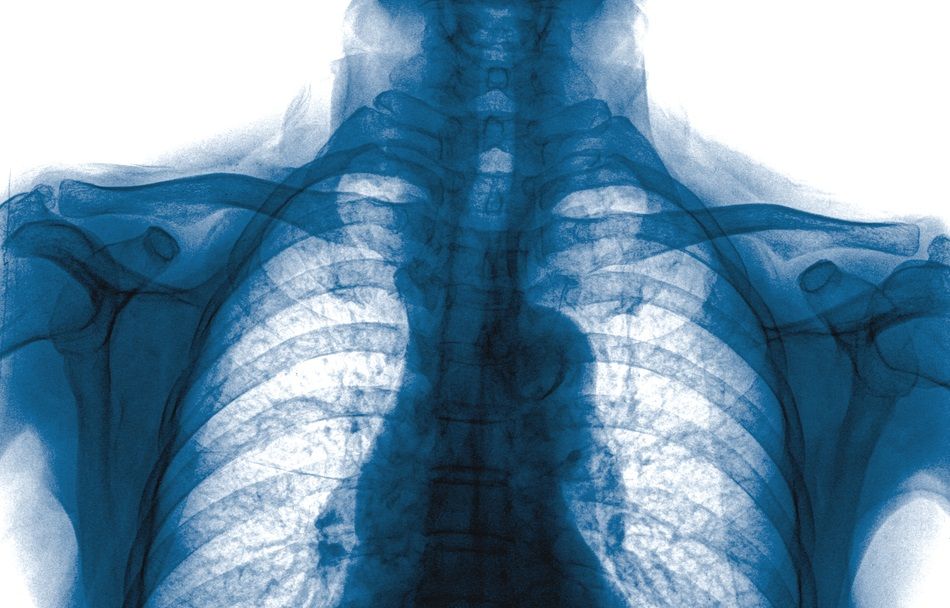Article
Nintedanib Shows Efficacy for Systemic Sclerosis Lung Disease
Author(s):
Patients with systemic sclerosis-associated interstitial lung disease who also take nintedanib experience a lower drop in their forced vital capacity, according to a new study.
Patients with systemic sclerosis-associated interstitial lung disease who also take nintedanib experience a lower drop in their forced vital capacity, according to a new study. (©Thailoei92ShutterStock.com)

Patients with systemic sclerosis-associated interstitial lung disease who also take nintedanib experience a lower drop in their forced vital capacity, according to a new study.
Based on the results of a paper published in a recent New England Journal of Medicine, researchers determined nintedanib, an intracellular tyrosine kinase inhibitor, preserves forced vital capacity, slowing interstitial lung disease progression.
“Nintedanib has shown anti-fibrotic, anti-inflammatory, and vascular remodeling effects in several animal models resembling aspects of systemic sclerosis, interstitial lung disease associated with systemic sclerosis, and other fibrosis interstitial lung diseases,” said study author Oliver Distler, M.D., rheumatology, internal medicine, and general medicine professor at University Hospital Zurich. “Findings suggest nintedanib could modulate processes fundamental to the progression of fibrosis in humans.”
Interstitial lung disease (ILD) is a manifestation of systemic sclerosis that tends to occur early in the disease and is a leading cause of death in this coindition. Currently, immunosuppressants mycophenolate and cyclophosphamide are common treatments in these cases. Nintedanib, an intracellular inhibitor of tyrosine kinases, is approved to treat patients with idiopathic pulmonary fibrosis. Although the two conditions have different triggers, they hold similar pathophysiological processes.
To test nintedanib’s safety and efficacy, investigators conducted a randomized, double-blind, placebo-controlled study with 576 patients assigned to receive either 150mg of twice-daily, orally-administered nintedanib or a placebo. Forced vital capacity decline rates were followed for 52 weeks.
According to the findings, the percentage of patients with more than 10-percent relative forced vital capacity decline after 52 weeks was 16.7 percent among nintedanib recipients and 18.1 percent for those receiving a placebo. The relative effect of nintedanib compared to placebo in reducing the rate of force vital capacity decline was 44 percent versus 49 percent, respectively.
It’s important to note, researchers said, that nintedanib showed no other clinical benefit and no affect of health-related quality of life.
Adverse events occurred at similar rates in both the nintedanib and placebo groups, but they caused more nintedanib recipients to discontinue treatment. Diarrhea was the most common adverse event affecting 75.7 percent and 31.6 percent of nintedanib and placebo recipients, respectively.
Ultimately, investigators said, even though nintedanib demonstrates efficacy in reducing forced vital capacity decline, study results do not support using it as a disease-modifying agent for systemic sclerosis overall.
Currently, a longer-term uncontrolled open-label extension study (ClinicalTrials.gov number, NCT03313180) is ongoing.
DISCLOSURES
This study was funded by y Boehringer Ingelheim.
REFERENCE
Distler O, Highland K, Gahlemann M, et al. "Nintedanib for Systemic Sclerosis-Associated Interstitial Lung Disease," The New England Journal of Medicine. May 20, 2019. DOI:10.1056/NEJMoa1903076




